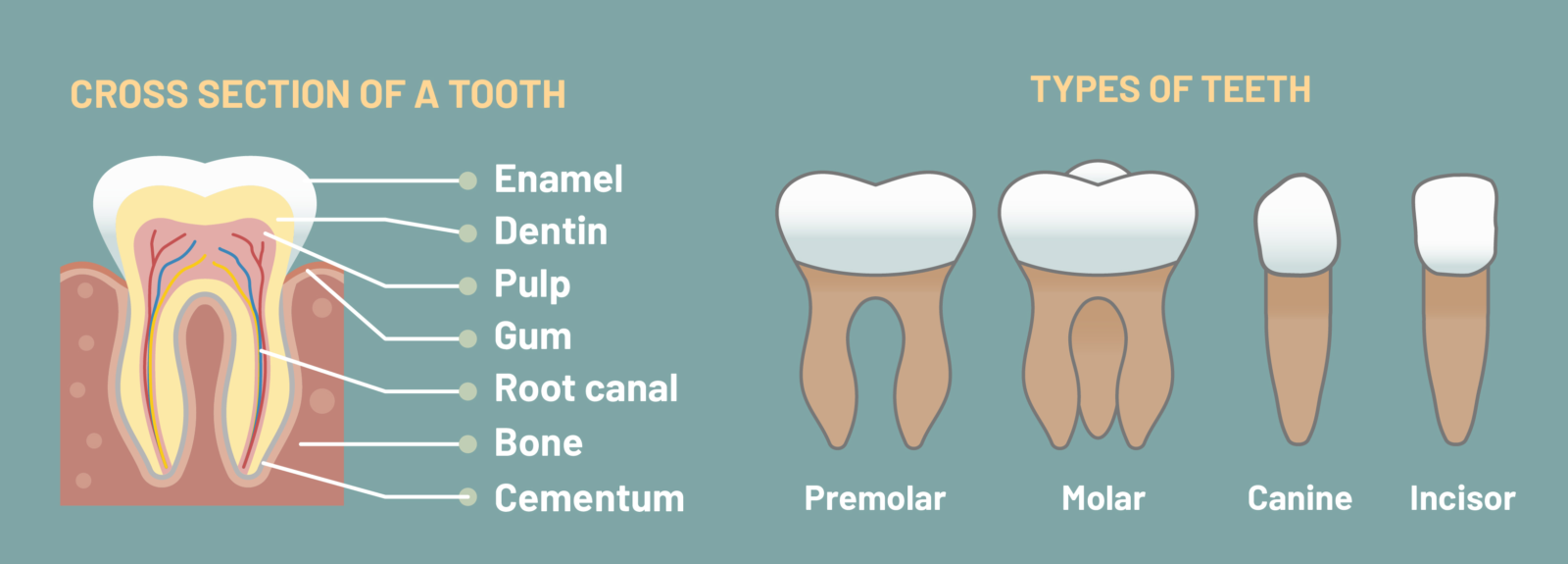Most people are familiar with having a teeth scale and clean; this preventive dental care treatment helps maintain healthy teeth and gums and is usually recommended every six months. In addition to maintaining good oral health, a dental scale and clean can help treat early gum disease. Scaling and root planing is a little different and is a dental deep cleaning treatment for teeth and gums.
Why Would I Need Scaling and Root Planing?
Dentists at Tandara Dental will recommend a scaling and root planing treatment if you have signs of advanced gum disease. Gum disease, also called periodontal disease, is a bacterial infection caused by dental plaque building up over your teeth and gums. Dental plaque is a sticky biofilm containing harmful bacteria that create toxins, infecting and inflaming your gums. Plaque soon hardens into tartar or calculus, a yellowish crusty substance that can only be removed by a dental professional. Periodontal disease is often a result of lax oral hygiene, although some people are more susceptible to developing this condition due to health or medical issues.
Advanced periodontal disease can significantly damage the structures around your teeth that help hold them firmly in place. These include your gums, the bone around your teeth, and periodontal ligaments that attach your teeth firmly in their sockets. The inflammation caused by gum disease results in gums pulling away from your teeth, creating spaces called periodontal pockets that can become so deep they cannot be cleaned with an ordinary toothbrush. These pockets create the ideal environment for harmful bacteria to thrive.
Scaling and root planing is a non-surgical treatment to help clean teeth and these pockets more effectively, eliminating those harmful bacteria and toxins.
What Are the Signs That I Might Need Scaling and Root Planing?
There are several signs that you may have infected gums, including noticing your gums are increasingly red, tender and inflamed. They are likely to bleed frequently, especially when you brush and floss your teeth and possibly other times. Your teeth might look longer than before as your gums begin to pull away and recede, and you may even start to see your tooth roots. Periodontal disease can cause persistent bad breath, and you may notice you have a nasty taste you cannot eliminate.
When you see our dentist, we can assess your gum health carefully, quickly diagnosing any signs of periodontal disease. We will use a special instrument called a periodontal probe to check the depth of pockets between your teeth and gums. Normally, healthy gums have a pocket depth of no more than 3 mm. If your pocket depth readings are higher, it can indicate gum disease.
What Is Scaling and Root Planing?
Scaling and root planing is a dental deep cleaning treatment for teeth and gums. Instead of just removing plaque and tartar buildup from tooth surfaces, your teeth are cleaned or scaled just below the gum line, removing plaque and tartar from deep inside the periodontal pockets. The process also deep cleans any exposed tooth roots, removing calculus buildup. Afterwards, these tooth roots are planed or smoothed, a process that makes it harder for plaque and calculus to adhere, aiding, so gums are more able to reattach to the tooth roots and to heal.
How Do I Prepare for a Scaling and Root Planing?
It is unlikely that you will need to do anything to prepare for this appointment, and if we feel any preparation is necessary, we will discuss this with your beforehand. If you wish, you may want to begin using an antimicrobial mouthwash to help reduce the number of bacteria present in your mouth, especially as some will be transferred into your blood during treatment. People with sensitive teeth might want to take an over-the-counter pain killer before their appointment, and using ibuprofen can help reduce inflammation.
What to Expect During Scaling and Root Planing?
During this appointment, we clean each section or quadrant of your mouth thoroughly. Your mouth has four quadrants or quarters: two in your lower jaw and two in your upper jaw. It may be possible to clean all four quadrants during one appointment. If an infection is more severe, we might suggest two separate appointments, so we will clean two quadrants on one side of your mouth, completing treatment by cleaning the other side of your mouth during your next appointment.
How Long Does a Root Planing and Scaling Take?
Deep cleaning teeth thoroughly can take between one and four hours, depending on the level of infection, which is why we may suggest more than one appointment.
Ensuring You Feel Comfortable During Treatment
We firmly believe dental care should never feel painful and administer a local anaesthetic before beginning this procedure. Local anaesthesia ensures the areas treated are numbed, so you will not feel any pain or discomfort.
Gently Scaling Your Teeth
Once the local anaesthetic has taken effect, we can begin to carefully scale your teeth to remove plaque and calculus. Scaling is normally completed using manual instruments or an ultrasonic instrument to help loosen the calculus. We scale your teeth to just beneath the gum line and between your gums and around your tooth roots. To accomplish this, we place the scaler in the periodontal pocket at a 45° to 90° angle to the tooth, carefully scraping away the calculus.
Root Planing
Whereas the crowns of your teeth are covered with dental enamel, a strong, durable substance, your tooth roots are covered with cementum that is far more easily removed. Calculus buildup can damage the cementum, leaving a rougher surface that makes it easier for plaque bacteria to adhere. Root planing is a process that smoothes the rough surfaces while removing bacteria from the exposed tooth root.
Once scaling and root planing is complete, we flush the area thoroughly to remove any remaining bacteria. Sometimes additional medication is placed topically into the periodontal pockets to help reduce the risk of infection after your treatment.
What Can I Expect after Scaling and Root Planing?
Deep cleaning your teeth may leave them feeling a little sensitive for a day or two after treatment, and initially, your gums may feel more swollen and tender and can bleed slightly. If needed, we can prescribe medication or an antimicrobial mouth rinse to help your gums heal more easily. It’s important to follow our instructions precisely on how to care for your mouth after scaling and root planing, including brushing your teeth at least twice a day and flossing daily.
How Long Does It Take for Gums to Heal after Scaling?
Once the infection is removed, your gums should begin to heal quite quickly, although some discomfort and sensitivity may remain for up to six weeks after treatment. This is perfectly normal. As your gums start to heal, you will notice they begin to fit more snugly around your teeth and feel stronger and healthier.
Periodontal Maintenance
You may need to return to our dental practice a few weeks after your treatment so we can check your gum health. We may also recommend a periodontal maintenance program of regular scaling and root planing treatments to help control advanced periodontal disease.










